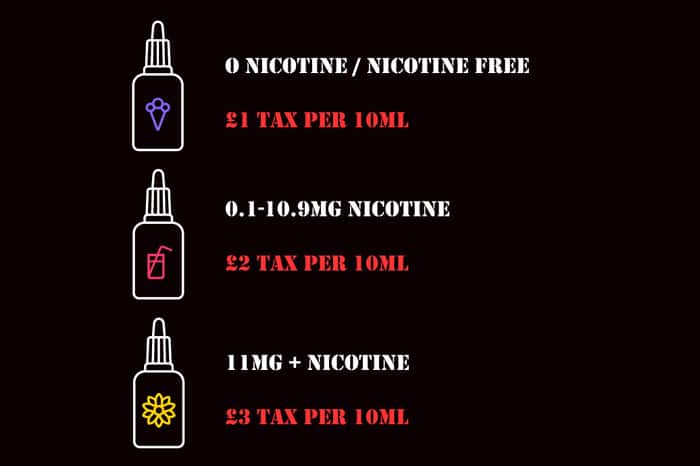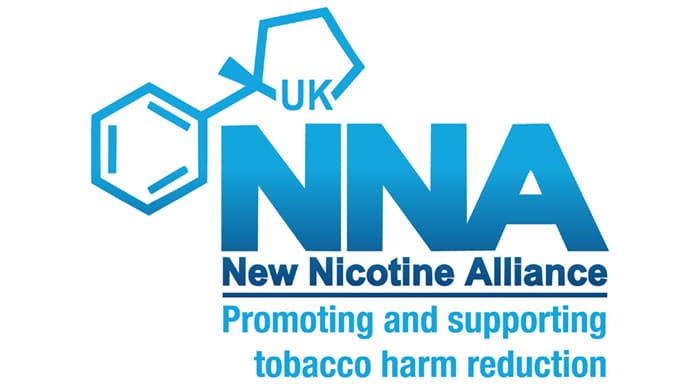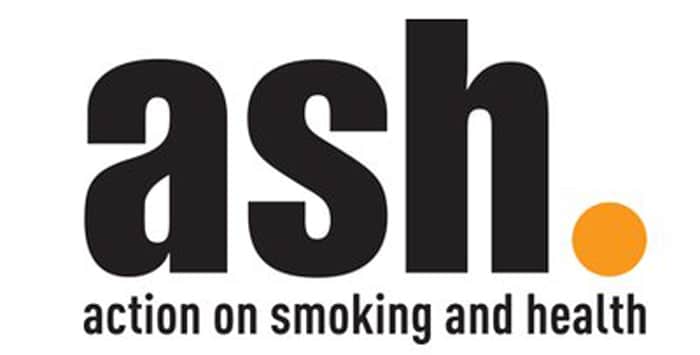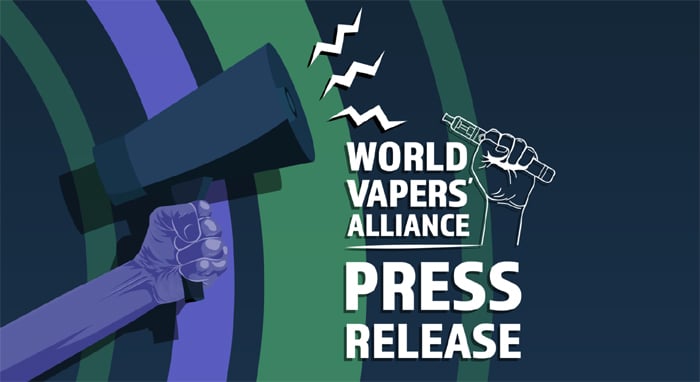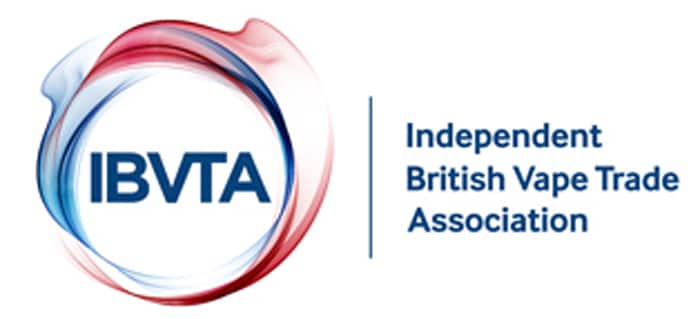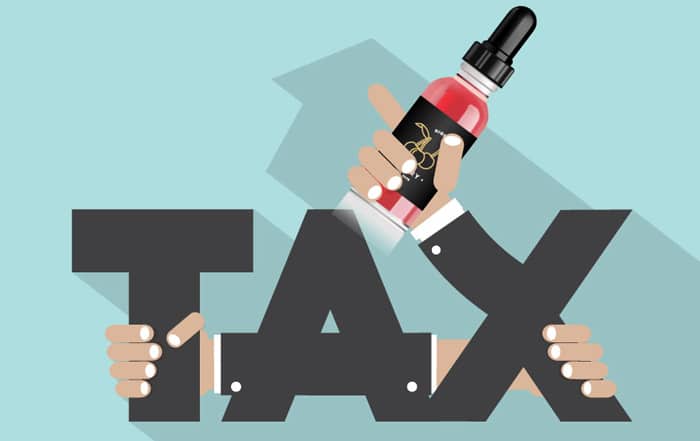
Sadly it has been announced after the Spring Budget statement today (Wednesday 6th March 2024) that the UK is to tax vaping products.
You can read the full statement here – but I will just focus on the area related to vaping.
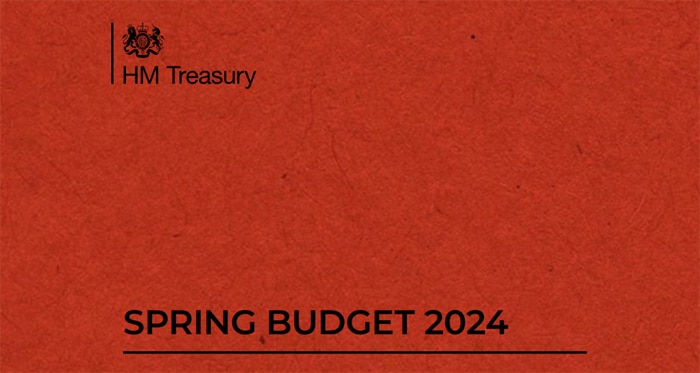
In the summary the reasoning for this decision is…
“Health advice is clear that vaping is not risk free and those who do not smoke should not vape. A new duty on vaping, introduced from October 2026, will discourage non-smokers from taking up vaping and raise revenue to help fund public services like the NHS. This new duty will raise £445 million in 2028-29.
Last year, the government announced ambitious plans to protect future generations from the harms of smoking and create the first smokefree generation. To ensure vapes continue to play a role in helping smokers give up cigarettes, tobacco duty will also be increased from October 2026 to maintain the current financial incentive to choose vaping over smoking. This will raise a further £170 million in 2028-29.”
“The government is committed to creating a smokefree generation and tackling youth vaping. To support this the government is introducing a new duty on vaping and increasing tobacco duty from October 2026, raising revenue to support public services like the NHS.”
The statement says…
5.31 Vaping Products Duty
The government will introduce a new duty on vaping products from 1 October 2026, with registrations for the duty opening from 1 April 2026.
The rates will be £1.00 per 10ml for nicotine free liquids, £2.00 per 10ml on liquids that contain 0.1-10.9 mg nicotine per ml, and £3.00 per 10ml on liquids that contain 11mg or more per ml.
A 12-week consultation will be published on the policy design and technical details alongside the Spring Budget. You can view this here. I will discuss this further in another article.
The government will also introduce a one-off tobacco duty increase of £2.00 per 100 cigarettes or 50 grams of tobacco from 1 October 2026.
What Does That Mean For Vapers?
So basically there will be a tax on e-liquid to be introduced in 2026.
- 0 Nicotine / Nicotine Free e-liquid – will be taxed at £1 per 10ml.
- 0.1-10.9mg Nicotine e-liquid – will be taxed at £2 per 10ml.
- 11mg or higher Nicotine e-liquid – will be taxed at £3 per 10ml.
A 12 week consultation will be apparently published – to refine the policy design and technical details. I will discuss this in another article – you can view the consultation document here.
The price of tobacco will increase in order to keep vaping as the cheaper option to incentivise swapping.
Industry & Advocacy Responses
As the industry responds to the announcement, I will add their responses below.
I have covered various responses to the taxation idea before the announcement here.
NNA (New Nicotine Alliance) Response
Media release
A tax on vaping liquids is irresponsible, will cost lives, and further erodes the UK’s former world-leading tobacco control strategy
For immediate release
- The tax on vaping liquids is damaging in principle and in practice.
- The UK government will undo its former position as a world-leader in reducing the prevalence of smoking.
- Government is now fighting itself by taxing the very products it is urging smokers to try.
- The government is clearly regulating from a position of ignorance and must urgently consult with consumer and public health experts.
LONDON, March 6, 2024: The Chancellor has today approved a tax on vaping liquids which is ill-thought-out and will cost thousands of lives.
The New Nicotine Alliance (NNA) is exasperated that the government is systematically dismantling world-leading policy which was an example to the rest of the world on how to utilise innovative harm reduction approaches to rapidly reduce the toll of smoking-related disease.
Following the ill-judged decision to ignore public health experts who warned of a ban on single use vapes deterring people who smoke from switching to products which could save their lives, it has now undermined its own admirable Swap to Stop campaign by vowing to increase the tax on the very products it is urging smokers to try. Furthermore, the design of the tax shows that government ministers have no understanding of how the devices help to reduce smoking prevalence.
Government is now fighting itself. It has been recently reported that 400,000 vaping products – the first of one million promised by the government last year – will be handed out free of charge under the Swap to Stop campaign, while the Chancellor is taxing them on the pretext that they are harmful.
The government’s own consultation document in October stated that “swapping to vaping is already helping 50,000 to 70,000 smokers in England quit each year – saving thousands of lives.” This extra tax will be a significant obstruction to that progress.
Just last week, a long-running Cancer Research UK funded study found that there were “substantial misperceptions about the harms of vaping compared with smoking” and emphasised “the need to clearly communicate the risks so that adults who smoke can make informed choices about the nicotine products they use.” The proposed tax on vaping liquids will further erode the public’s understanding of the difference between vaping and smoking and will harm public health.
It is undeniable that taxing vapes further (liquids are already liable for VAT at 20%) will lead to more smoking than without a new tax. This will undoubtedly slow progress towards and imperil the government’s Smokefree 2030 goal. It will also boost illicit trade in vapes on top of the high level we already have, and place excessive burdens on small businesses of tax bureaucracy compliance, effectively penalising independent vape businesses and benefitting cigarette sales.
NNA Chair, Louise Ross, an expert on smoking cessation for nearly two decades comments:
“putting a higher tax on stronger e-liquids completely misses the point that the more heavily dependent smokers will need stronger liquid to stay smoke-free. This will include people with poor mental health, people on benefits, people living in disadvantaged communities and those with challenging lives. Higher taxes will keep them smoking.
“The Swap to Stop scheme relies on heavily dependent smokers being convinced of the value of switching to a rechargeable, refillable vaping product. Adding taxation to e-liquids risks all that. People in poverty who would have been easily persuaded to switch will simply go back to smoking, and the opportunity to get them off cigarettes will be lost.”
Clive Bates, former Director of Action on Smoking and Health and a voluntary public health adviser to the NNA, said:
“A tax on vapes is basically a tax on health. If they are serious about getting smoking down to five per cent by 2030, the last thing the government would be doing is making it more expensive and less appealing to switch from smoking to vaping, which the government knows poses only a small fraction of the risk.
“The irony is that these measures won’t stop vaping, but they will mean more vapes are supplied through criminal networks, unscrupulous middlemen and dodgy retailers. If you want to do something about youth vaping, focus on licensing retailers and irresponsible marketing and packaging.”
Instead of issuing kneejerk policies driven by moral panic about reduced risk alternatives to smoking, it is imperative that the government urgently consults with consumer and public health experts. It cannot claim to care for the UK’s public health if it continues to promote policies which can only lead to more smoking-related disease and death.
Issued on behalf of the New Nicotine Alliance
ENDS
ASH UK (Action on Smoking & Health) Response
Press Release
ASH comment on Budget decisions on tobacco and vaping
06 Mar 2024
Immediate release: Wednesday 6th March
In today’s Budget the Chancellor announced that “the government is introducing a new duty on vaping and increasing tobacco duty from October 2026, raising revenue to support public services like the NHS.” This will maintain the current financial incentive to choose vaping over smoking.
- The excise tax on vaping will raise £120 million in 2026-7 rising to £445 million by 2028-9
- The additional tobacco duty will raise a further £110 million in 2026-7 and £170 million in 2027-8 and in 2028-9
Vaping excise duty
A 12-week consultation on the policy design and technical details was launched today.
Registrations for the vaping duty will open on 1 April 2026. The rates will be:
- £1.00 per 10ml for nicotine free liquids,
- £2.00 per 10ml on liquids that contain 0.1-10.9 mg nicotine per ml, and
- £3.00 per 10ml on liquids that contain 11mg or more per ml.
Tobacco tax changes
The government will also introduce a one-off tobacco duty increase of £2.00 per 100 cigarettes or 50 grams of tobacco from 1 October 2026.
Deborah Arnott, chief executive of Action on Smoking and Health, said:
“Putting excise duty on vapes gives much needed additional powers to Border Force and HMRC to stop the import of illegal vapes which are flooding the market and need to be brought under control. These are powers they already have for tobacco which helped reduce the consumption of illegal cigarettes by 80% between 2000 and 2021.”
“The additional increase in tobacco taxes is welcome, as keeping vaping cheaper than smoking is vital to encourage smokers trying to quit to switch to vapes which are the most effective stop smoking aid available over the counter.”
“However, it’s smokers and those trying to quit and stay quit who will be paying these extra taxes. It takes the average smoker thirty attempts before they successfully quit, and specialist support and anti-smoking campaigns can increase the likelihood of success many times over. These new taxes should be used to plug the cuts in prevention measures and help the government achieve its smokefree 2030 ambition.”
The additional tax take of £230 million in 2026-7 rising to £615 million in 2028-9 will come from the pockets of consumers not the industry. Smokers and smokers trying to quit and stay quit will pay the price. The Chancellor has missed the opportunity to raise up to £700 million more to help plug the public finance gap, by capping the excessive and extreme profits of the tobacco manufacturers.
Dr Rob Branston, senior lecturer in business economics at the University of Bath said:
“Tobacco manufacturers are an untapped source of tax revenue, with net operating profits far in excess of other businesses. For example Imperial Tobacco made 71% profits in 2021, that’s £71 for every £100 turnover, more than ten times as great as the profit margin of BP.
“By capping profits to 10% while keeping retail prices the same, the government could raise up to £700 million a year from tobacco manufacturers without putting an additional burden on consumers. This is far more than the £500 million its estimated that the additional tobacco and vape tax will raise, all of which will come from the pockets of consumers rather than industry profits.”
ENDS
ASH (Action on Smoking & Health) Wales Response
Press Release
New vape tax would be a welcome next step – but more action is urgently needed to achieve a Smokefree Generation and tackle youth vaping
Two of Wales’ leading health charities have welcomed plans for the additional regulation of vape products, following the announcement of a consultation on the design of a new levy by Chancellor, Jeremy Hunt.
ASH Wales and Asthma + Lung UK Cymru agree a new tax is a good idea and have now urged the UK Government to go further.
Suzanne Cass, chief executive of Ash Wales, said:
“A new tax will be a useful lever to support enforcement to tackle the supply and demand of illegal products, especially among children who should never vape. But on its own, it’s not enough.
“The longer we wait – the bigger the problem becomes and more children become dependent on nicotine. We urgently need to see the bill to create a smokefree generation and tackle youth vaping tabled in Westminster, progressed through the legislative process and then passed into law here in Wales.”
Joseph Carter, Head of Asthma + Lung UK Cymru said:
“Introducing a new tax on vapes is a good idea. We need urgent action to stop children from vaping, with disposable vapes in particular remaining far too attractive and easy for children to buy – a price increase would quickly make vapes less accessible.
“However, the revenue from a vaping levy must be used to fund a vape recycling scheme and enforcement around sales. Alongside a levy, we want to see restrictions on the marketing of vapes so that they do not appeal to children.”
A vape tax would also have the added benefit of giving greater powers to Border Force and HMRC to stop the import of illegal vapes.
ASH Wales also welcomed plans for an increase in tobacco duty and highlighted the importance of keeping a price differential between vapes and tobacco, to avoid sending a message that they are equally harmful.
Worryingly, according to ASH Wales data, there is a sizeable proportion of adults in Wales who believe that vapes are just as harmful, or more harmful than tobacco cigarettes.
The ASH Wales YouGov Annual Survey 2023 shows the percentage who feel this way has grown from 25% in 2017 to 46% in 2023. This is consistent among smokers in Wales, with 47% who felt this way – again a significant increase from 14% of smokers in 2017.
Suzanne Cass added:
“It’s important that smokers always have that option to switch from smoking to vaping, which is not only significantly less harmful to their health – but it should also be less expensive too.”
Joseph Carter added:
“It’s also important to remember that vaping can be a useful way for adults to quit smoking, so the levy should fund an expansion of the Swap to Stop scheme and enable people on the lowest incomes to access vaping devices to help them.
“If you’re a smoker and you want to quit tobacco, vaping can be a helpful way to give up smoking. But for children and those who don’t smoke, starting to vape is never good idea, especially if you have a lung condition.”
WVA (World Vapers’ Alliance) Response
Press Release
For Immediate Release
6 March 2024
The UK’s announced increased vaping tax jeopardises the country’s success in beating smoking
London, UK – Today the UK government announced a new tax on vaping products. This move raises significant concerns for the country’s harm reduction policy trends, which has previously boasted its leadership in smoking cessation efforts.
The recent policy changes, including the proposed generational ban for less harmful heat-not-burn products and disposable vapes, are a step in the wrong direction, says the head of the global vaping consumer movement, World Vapers’ Alliance, Michael Landl.
“Higher prices for less harmful vapes are placing the lives of millions of former smokers and current vapers in jeopardy. The cost is a high determinant for switching to less harmful options and this will only make alternative products less affordable. It’s illogical to discuss reducing taxes for individuals while simultaneously raising taxes on smoking cessation aids,” said Landl.
According to the reports, the UK Treasury expects to raise more than £500m a year by 2028-29 between the vaping tax and the increase in tobacco duty.
“Just last year, the UK government took a pioneering step in harm reduction policy by introducing the innovative ‘swap to stop’ program. The new tax increase is a huge step backwards and risks leading to the growth of the black market and illicit trade in e-cigarettes and other nicotine-containing products,” added Landl.
“The UK should follow the example of Sweden which last year lowered the tax on snus, its leading harm reduction product. Now, Sweden is about to become the first smoke-free country in the world. The UK could be the leader of smoking cessation thanks to vaping.” concluded Landl.
For more information and to support our cause, visit our website and join the movement towards a better, smoke-free future.
– END
IBVTA (Independent British Vape Trade Association) Response
Mar 6, 2024
IBVTA statement on today’s budget announcement of a duty on liquids
Chancellor Jeremy Hunt has today announced that to discourage non-smokers from taking up vaping, the Government is confirming the introduction of an excise duty on liquids used in vaping products from October 2026, and has published a consultation on its design.
The consultation will run for 12 weeks, and closes on the 29th of May.
The rates being proposed will be £1.00 per 10ml for nicotine free liquids, £2.00 per 10ml on liquids that contain 0.1-10.9 mg of nicotine per ml, and £3.00 per 10ml on liquids that contain 11mg of nicotine or more per ml. It is proposed that the duty will be chargeable at the point of their manufacture in, or importation into, the UK.
IBVTA Chair, Marcus Saxton, said:
“The government has already proposed regulation that will ban single use products, which despite helping many adult smokers access vaping, have via irresponsible retailers been disproportionately accessible to children.
It would seem a little questionable then to increase the cost of vaping, especially for the higher strength liquids which many smokers need to make the switch, when you’ve still got around six million adult smokers for who you’re trying to give every opportunity to make the transition to less harmful products.
There’s also the potential negative effect of an excise on public services utilising vapes within their smoking cessation services. The IBVTA do not believe that any excise tax should be applied to products supplied via these services.
The IBVTA will be carefully considering the consultation announced today and we look forward to working constructively with HMRC to make sure these proposals are meaningfully enforceable and don’t have unintended consequences.”
WeVape Response
The group posted a series of social media posts expressing their reaction to the news.
“These kinds of ill-considered moves also explain why 60% of smokers still think vapes are worse for you than cigarettes, when we know they are vastly safer because there is no combustion or tar, which causes cancer.” pic.twitter.com/ya6mb4WVqx
— We Vape (@WeVapeUK) March 6, 2024
“People should be incentivised to vape instead of smoke, and this move achieves the opposite.
“What politicians ignore is that cigarettes can be picked up very easily on the illicit market for £5 a pack. This vape tax will make the much safer vaping more expensive than that”.
— We Vape (@WeVapeUK) March 6, 2024
UKVIA (UK Vaping Industry Association) Response
The UKVIA have written to the Chancellor Jeremy Hunt expressing their “Disappointment and Concern” over the new vape tax. You can see the letter in the Tweet (X) below.
The UKVIA has expressed its disappointment and concern with the decision to impose a new tax on vaping products in a letter to Chancellor Jeremy Hunt.
As a part of the Spring Budget, it was announced that the government will introduce an excise duty for e-liquids in October… pic.twitter.com/O8Y00kCMLc
— UKVIA (@Vaping_Industry) March 7, 2024
Science Media Centre Expert Reactions
Taken from the article found here – “Expert reaction to the Spring Budget“.
This page has many reactions to different areas of the budget. I have quoted the comments regarding the vape tax.
Professor Maggie Rae, President and Dr Nicola Stingelin-Giles, council member, of the Epidemiology & Public Health Section, Royal Society of Medicine, said:
“Smoking tobacco is the biggest cause of entirely preventable illness and death in the UK. Helping people stop smoking is one of the best things we can do for people’s health and, therefore, is a public health priority.
“Vapes, or e-cigarettes, that contain nicotine can be effective tools to aid this. While vaping is not risk-free, and more research is needed to fully understand the health effects, the harms are known to be substantially less than those of smoking tobacco.
“The rise in uptake of vaping amongst non-smokers – and particularly children and young people – is an area of huge concern and we welcome efforts to address this. These include the proposed ban on disposable vapes, and restrictions on flavours and packaging, aimed directly at making vaping less attractive for younger people.
“But it’s imperative we ensure medicinal use of vapes to aid people to stop smoking continues to be encouraged, as smoking cessation remains the matter of greater importance.
“Introducing a tax which makes vaping more expensive must be carefully considered to ensure the positives are not outweighed by any resulting harmful effects on health, especially where there is a risk of widening inequity in our society. It’s important we focus smoking cessation efforts on helping those people in the most at-risk groups who stand to lose the most.
“This is a complex area with no easy decisions, but the primary goal has to be delivering the greatest health benefits for the public. We welcome the debate on the best means of doing this.”
My Thoughts
Hands up those who think this measure will fuel the existing Black Market? We already have issues with illicit and illegal vapes – so increasing the price will mean many will have to find alternative cheaper suppliers.
Also the sad fact is that vaping is substantially cheaper than smoking – once you have bought the equipment, you are only buying e-liquid and replacement pods / coils. Increasing the price of e-liquid will diminish the financial benefit of swapping to vaping.
Another big issue is that the higher nicotine e-liquid’s will be taxed heavier. These are the products that are most useful for those who are transitioning from smoking. For instance a bottle of 20mg nicotine e-liquid which currently retails at £3.99 will increase to £6.99 with the tax applied. That is for 10ml of e-liquid – which is shocking.
Not to mention those who buy shortfill nicotine free e-liquids. For instance a typical 100ml bottle of e-liquid priced at £9.99 would increase to £19.99 with the £10 (£1 per 10ml) tax applied. This would be double the price!
This is a really bad move. I sort of agree with a tax as it does fund more enforcement and allow other agencies to join in. But the level of tax is extortionate. Perhaps £1 per bottle – regardless of nicotine strength or volume would be more sensible.
Anyway let me know your thoughts in the comments below!
Industry & Advocacy Social Media Responses
Utter stupidity from @RishiSunak‘s government. @Jeremy_Hunt https://t.co/INBnPXMzTk
— Martin C (@NannyFreeState) March 6, 2024
“Forget sin taxes, this is a saint tax. Vapers did what the government wanted and gave up smoking. They are now being punished for it.”
Our @cjsnowdon comments on the government’s plans to tax e-cigarette fluid.https://t.co/S6JlHHTnZN
— IEA (@iealondon) March 6, 2024
There must be an echo! Chancellor Jeremy Hunt has today revealed the government will be undertaking yet another consultation on vaping – this time looking at the implementation of a new duty on vaping products, set to be introduced in 2026.
Over the past year, the government has… pic.twitter.com/p6A0P8sbm8— UKVIA (@Vaping_Industry) March 6, 2024
My comment on the UK government’s vape tax… pic.twitter.com/zLS6QtICpO
— Clive Bates (@Clive_Bates) March 6, 2024
🇬🇧 UK vape tax incoming. It’s illogical to discuss reducing taxes for individuals while simultaneously raising taxes on smoking cessation. Terrible idea.
The government is turning the UK from a harm reduction champion to heaven for black market actors. https://t.co/oXDN2dQxZ6
— Michael Landl (@LandlMichael) March 6, 2024
UK HMRC Vape Tax Consultation: Let’s make vaping more expensive and reduce nicotine content – What could possibly go wrong? Answer: More people smoke cigarettes. pic.twitter.com/y6Wwme1KML
— Frederik Cyrus Roeder 🇺🇦 (@FredCyrusRoeder) March 7, 2024
💭 Do you think the Vape Tax announced at yesterday’s Budget is a good policy or not?#Budget2024 #vape #VapeTax
— UKVIA (@Vaping_Industry) March 7, 2024
